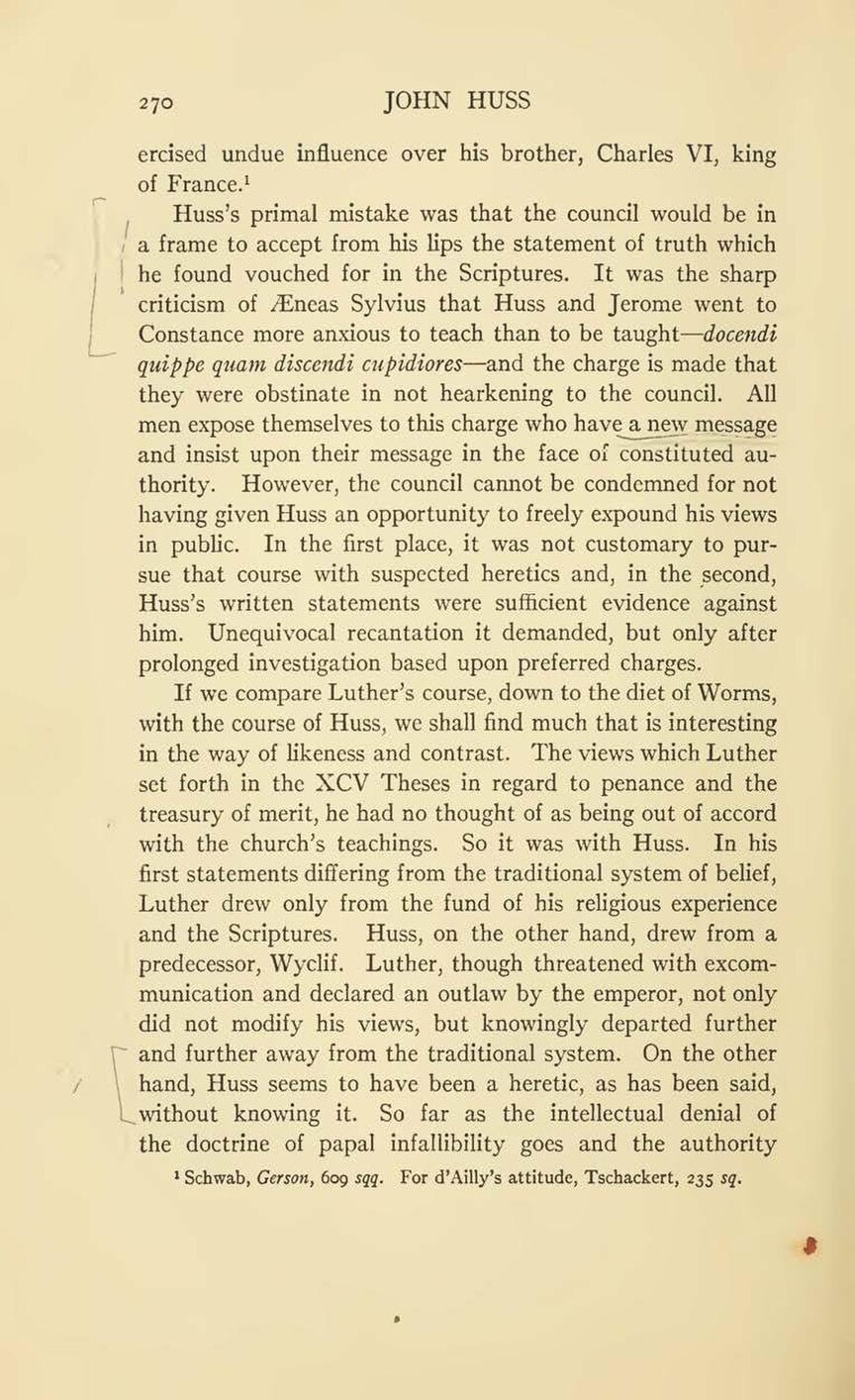ercised undue influence over his brother, Charles VI, king of France.[1]
Huss’s primal mistake was that the council would be in a frame to accept from his lips the statement of truth which he found vouched for in the Scriptures. It was the sharp criticism of Æneas Sylvius that Huss and Jerome went to Constance more anxious to teach than to be taught—docendi quippe quam discendi cupidiores—and the charge is made that they were obstinate in not hearkening to the council. All men expose themselves to this charge who have a new message and insist upon their message in the face of constituted authority. However, the council cannot be condemned for not having given Huss an opportunity to freely expound his views in public. In the first place, it was not customary to pursue that course with suspected heretics and, in the second. Huss’s written statements were sufficient evidence against him. Unequivocal recantation it demanded, but only after prolonged investigation based upon preferred charges.
If we compare Luther’s course, down to the diet of Worms, with the course of Huss, we shall find much that is interesting in the way of likeness and contrast. The views which Luther set forth in the XCV Theses in regard to penance and the treasury of merit, he had no thought of as being out of accord with the church’s teachings. So it was with Huss. In his first statements differing from the traditional system of belief. Luther drew only from the fund of his religious experience and the Scriptures. Huss, on the other hand, drew from a predecessor. Wyclif. Luther, though threatened with excommunication and declared an outlaw by the emperor, not only did not modify his views, but knowingly departed further and further away from the traditional system. On the other hand. Huss seems to have been a heretic, as has been said, without knowing it. So far as the intellectual denial of the doctrine of papal infallibility goes and the authority
- ↑ Schwab, Gerson, 609 sqq. For d’Ailly’s attitude, Tschackert, 235 sq.
